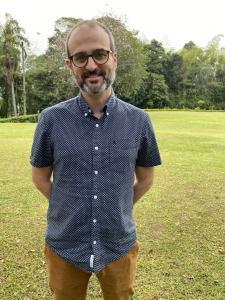
Communication Studies draws from the liberal arts tradition and a variety of pre-professional contexts to explore human communication in messages, relationships, and culture. The Honors Tutorial program builds upon the strengths of the School of Communication Studies (COMS) in three main areas:
- Public advocacy(including political communication, argumentation, legal communication, and nonprofit advocacy).
- Organizational communication(including the role of communication in developing relationships within groups and teams, leadership within organizations, and sharing the organization’s efforts in public venues).
- Health communication(including communication between caregivers and patients, patients and social support networks, and public health messages).
Following graduation, some COMS HTC graduates attend law school or enter other graduate programs, some begin careers in political and other non-profit organizations (e.g., Teach for America), and some begin careers in other organizations. Scroll to the bottom of this page to see what some of our alumni are doing now and what they say about their COMS HTC experience.
The HTC program in Communication Studies aims to provide the student with a comprehensive understanding of communication theory and practice, a student-driven focus in a specific aspect of communication studies, and extensive experience in communication inquiry and research. COMS HTC students will learn with other COMS majors in some courses, while developing their expertise in tutorials devoted to developing in-depth experience and understanding.
The School of Communication Studies emphasizes the value of understanding others, while recognizing the limits of one’s own knowledge and experience. Thus, in addition to required coursework in the major, COMS HTC students are encouraged to study abroad and learn a second language during their undergraduate years. Students who choose to study abroad may have one or more of the required courses and/or tutorials waived by the Director of Studies.
Part of the Scripps College of Communication, the School of Communication Studies is home to Ohio University's award-winning interscholastic forensics program (varsity speech and debate team) as well as other student organizations. COMS HTC students are encouraged to participate in all aspects of the life of the school and college.
Director of Studies

Matthew deTar, Ph.D., Associate Professor
740-597-3328Schoonover Center 439
detar@ohio.edu
Academic Requirements
Expression
Complete COMS 1030 Fundamentals of Public Speaking
Present scholarly work to an audience
Core Knowledge
Complete COMS 1100 Communication Among Cultures
Complete COMS 2350 Introduction to Communication Theory
Core Skills
Complete COMS 2150 Argumentative Analysis and Advocacy
Complete two of these three courses: COMS 3420 Qualitative Inquiry in Communication; COMS 3520 Quantitative Inquiry in Communication; COMS 3620 Rhetorical Inquiry and Criticism
Depth of UnderstandingComplete three COMS courses at the 3/4000-level, including COMS 4800
InterdisciplinaryComplete 15 hours in a minor or related area of study
Tutorials
Each semester, the student will complete a tutorial of at least 3 credit hours on a topic chosen in consultation with and approved by the Director of Studies and the faculty tutor. In the first semester of the first year, the student will complete an introductory tutorial, which may cover such topics as interpersonal relationships, communication contexts (small groups, health, public advocacy), scholarly writing, and research traditions.
Every tutorial will cover its theme in depth and will conclude with a significant product appropriate to the topic. Tutorials are geared to each student's specific interest and career plans.
Students will work with the Director of Studies to ensure applied research, field experience, or creative activity is included in third-year tutorials as experiential learning.
Thesis
Every student is required to complete a thesis on a topic in communication studies developed in consultation with and approved by the Director of Studies. Each student publicly presents a summary of the completed thesis to the COMS community. Tutorials during the third year prepare the student to develop a topic and appropriate research methods. Tutorials during the fourth year focus on the completion of the thesis.
Communication Studies HTC Alumni Features
HTC students from all majors speak glowingly of their educational experiences at OHIO—and alumni of the HTC program in Communication Studies are no different. Read more about what some of those alumni and doing now, and how their COMS HTC education helped them.
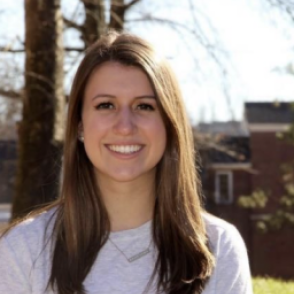
Senior Policy Aide, United States Senate
2019 Graduate
I cannot overstate the impact of HTC on my academic and professional career. My degree gave me so many skills that continue to serve me: most especially my writing, but also my ability to build and articulate an argument, defend my ideas, and distill difficult subject matter.
The one-on-one tutorials with the incredible faculty in the School of Communication Studies both challenged and supported me in this growth, and many of these professors have remained mentors to this day. I was able to study subjects that I would not have found in any general education class, and enjoyed the way that intellectual curiosity and exploration were enthusiastically encouraged by my professors.
My HTC degree opened many doors for me, including the skills that I now use daily in my policy work on Capitol Hill. I still believe that choosing HTC was one of the best decisions I have made to this point, and I cannot recommend the program enough to prospective students who are seeking a rigorous, exciting, intellectually stimulating education with lasting impact.
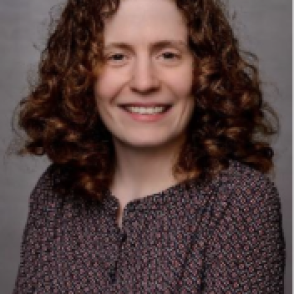
Senior Policy Analyst, People For the American Way
2004 Graduate
HTC was an integral part of my OHIO experience. It allowed me to jump straight into the deep end of my COMS education. I worked one-on-one with professors from across the school while also learning from them in more traditional classroom settings. I could refine my skills and research interests one-on-one while completing the foundational coursework of a COMS education. The professor-student relationships I formed along the way also led to extracurricular opportunities, like a humanities research apprenticeship and a congressional internship. It's an invaluable small-college experience within the larger OHIO campus and the Athens community.
Get everything you can out of your classwork. Get out into the field when you can and see it in action. Stand up for your values, and look for connections with others along the way.
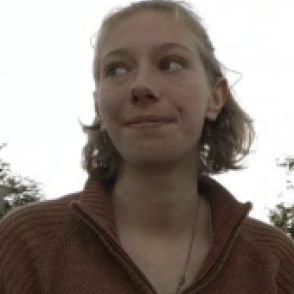
Migrant Services Intern with Kino Border Initiative
2022 Graduate
The topics that interest you are not silly! If something intrigues you and makes you light up while talking about it, bring it into your tutorials and relate it back to your COMS classes. It does not matter if you cannot figure out how to make certain themes sound academically rigorous or cohesive when you first start examining them. Thanks to the flexibility of HTC and the broad applicability of COMS, I was able to explore topics from some of my favorite COMS and non-COMS classes and slowly bring them together in my thesis project. Geography of Latin America, History and Culture of Latin America, Intro to Social Work, Communication in Nonprofit Organizing, and Storytelling and Social Change morphed into a more specific interest in communication witnessed through storytelling in migration. Now I get to work at a migrant shelter in Mexico, treasuring the stories and storytellers I receive each day.
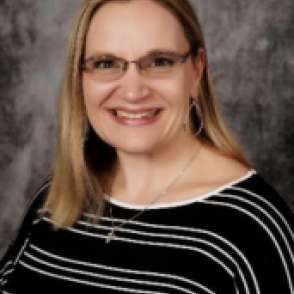
Director of Health Promotion & Community Relations for a Local Health Department in Ohio
1998 Graduate
My communication degree and specialization in health and human services launched my professional career where I have worked in human resources, fundraising and development, public relations and marketing, health education, research and evaluation, public information management, and more. The value of the individual tutorial learning sessions equipped me for leadership and the ability to advocate for myself and others. Today's employers are looking for professionals who have the knowledge, self-discipline, and initiative to propel work projects forward, and the OU HTC program fosters these skills for success. I am thankful for my experiences as an Interpersonal Communication major in the OU HTC program, and I highly recommend this experience to others.
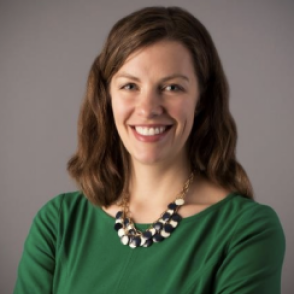
Julia Louise Krahe, Senior Vice President at Crosby Marketing
2003 Graduate
I used my HTC COMS degree to study Political Communications in depth. While I was at OHIO, I took University Professor classes on things like "Persuasion," used the ability to avoid prerequisites to take only "Political Sociology" and "Political Psychology," and studied communications like the way marriage was addressed in welfare policy (my thesis topic). Since OHIO, I've split my career -- half has been political work, including electoral campaigns and serving as communications director for a member of the U.S. House of Representatives, the U.S. House Committee on Education and Labor, and a member of the U.S. Senate in leadership. The other half of my work has been in communications contracting, normally for the federal government, and often around public health. For example, I've helped a very prominent public health director manage messaging around COVID-19 and am currently creating a guide to inclusive language for a leading group making recommendations around preventive care.
OHIO's HTC program in Communication Studies is where I learned to think deeply about words and messaging, about how communication shapes the world around us and our response to it. It taught me the power of a good story in changing people's behavior, and opened my eyes to how others are trying to shape my own reactions. I have used what I learned at OHIO across my career - whether I was helping a prominent senator explain a delicate political position, crafting messages to help people stay safe during the pandemic, or teaching leading clinicians how to explain their latest health guidelines to the media, I have leaned on and grown from the work I did in HTC.
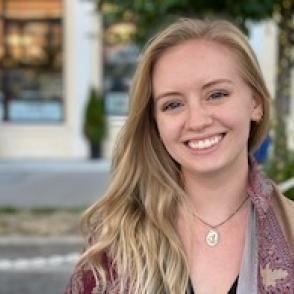
Kate (Clausen) Lancashire, Senior Human Resources Manager at Wizards of the Coast
2016 Graduate
My experience gained through HTC in the School of Communication Studies has been incredibly valuable to my growth and career. Communication studies touches the theoretical underpinnings of our lives and how we navigate the world. I wanted to study communications and find a way to turn it into a career. HTC let me do that. First, I was able to customize my classes and tutorials to allow me to dive into both organizational communication and human resources in partnership with professors from the business college. This let me pair the theoretical studies with practical application in a way that aligned with my interests and career goals. Also, the rigor of the thesis writing process taught me how to dive into an ambiguous problem with a lot of autonomy. While that skill is particularly important in my job that deals with messy people problems, being able to think through ambiguity is valuable for any career.
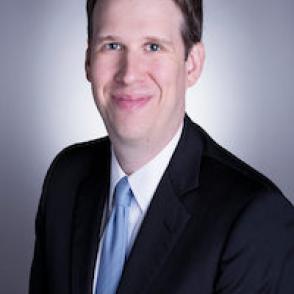
Nathaniel Grow, Associate Professor of Business Law and Ethics at Indiana University's Kelley School of Business
2002 Graduate
The skills I gained during my HTC studies have proven to be quite beneficial throughout my career. Beyond learning to be a more effective communicator generally, I benefited from being able to focus on a particular area of personal interest -- legal communications -- for my senior thesis. This project helped prepare me to succeed in law school, and ultimately served as the basis for my first book after entering academia (Baseball on Trial: The Origin of Baseball's Antitrust Exemption).
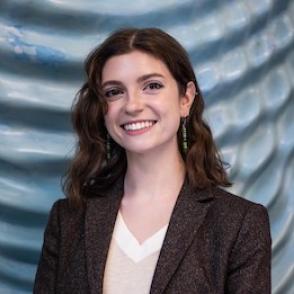
Hannah Graber, Community Development Analyst at the Federal Reserve Bank of Cleveland; second year graduate student at Carnegie Mellon University (Master of Science in Public Policy and Management)
2020 Graduate
The four years I spent pursuing Communication Studies in the Honors Tutorial College were foundational in my academic, professional, and personal development. Not only were my (sometimes incredibly niche!) interests fostered by the wonderful team of professors and advisors, but by the other COMS students and entire HTC community. Rest assured, you will be surrounded by peers who think it’s cool to nerd out about the theoretical underpinnings of Goffman’s ideas of ‘self’ as performance—and will gladly listen to you ramble about it at 2 a.m. in the Alden Library stacks. It may sound intimidating at first, but the opportunity to conduct one-on-one research projects with a different professor each semester via tutorials and write a thesis on anything you want was life changing for me. In addition to the unique academic rigor, HTC connected me with roommates, best friends, and even my partner who I met in a Transmedia Star Wars class taught by our Dean. I will be forever grateful for my time as a student in the HTC COMS program!
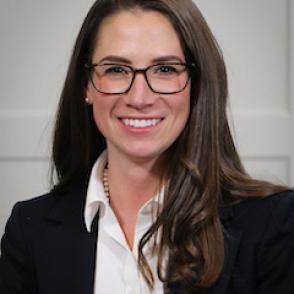
Jesse Branner Hittle, Assistant Law Director, City of Athens; Former Professor of Legal Analysis, Research, and Writing, Capital University Law School
2010 Graduate
HTC prepared me for law school with extensive coursework focusing on critical thinking and analysis. As a former law professor, I used to tell incoming students the best way to prepare for law school is to read as much as possible. For OU students who want to go to law school, the best way you can prepare is to study in HTC.
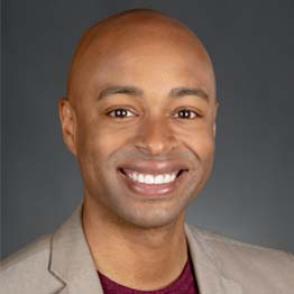
Micah McCarey, Athens City Council Member-at-Large
2007 Graduate
I learned so much from each tutorial, beginning with my first day of classes when Dr. Lynn Harter introduced me to the breadth of research focuses within communication studies. I loved how easy and fun it became to observe, discuss, research and write about the interpersonal and organizational communication dynamics I observed in student organizations, residence halls, offices, and in the university as a system. Drs. Devika Chawla and Christina Beck advised my autoethnographic honors thesis about how communicative experiences shape understandings of identity. That journey provided me with a strong foundation for completing a Master of Arts in human development through Ohio University’s Individual Interdisciplinary Program (IIP). Athens, the Honors Tutorial College, and Ohio University have provided me with such consistent yet dynamic intellectual, professional, academic, and social support that I’m proud to say I remained to deepen my community leadership engagement and to earn an interdisciplinary Ph.D. in positive psychology and decision-making. I drew from what I learned about quantitative and qualitative research methods across all three degrees to write my dissertation about using the quantitative method of multi-attribute utility modeling to evaluate Pride Center initiatives designed through the qualitative process of critical appreciative inquiry. I harness the power and practice of communication, human development, and decision-making theory on a daily basis and I live an incredibly satisfying life as a result.
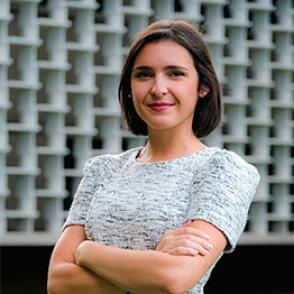
Sara C. Izquierdo Fortuño, Law school student
2019 Graduate
As a curious first-year student, I wanted to explore the intersection of communication with gender studies, politics, religion, social media, and culture. The tutorial experience allowed me to delve deep into all of these areas along with a professor that specialized in the matter. The tutorial sessions - irrespective of the professor - typically flowed like a casual conversation, but in order for them to run effortlessly, extensive reading and preparation was required. Therefore, I usually drafted a weekly reflection paper and formulated discussion questions to guide the sessions, and thus, the conversation. By the end of each semester, I had developed a great relationship with the professor, but also a graduate-level understanding of the studied subject matter, all the while improving my research, writing, and analytical skills. I must add that the benefits of the program extend beyond the classroom. During college, I participated in three internship experiences in the field of journalism, corporate communications, and political communications. Then, right after graduating, I started working in advertising. Now, I am a law school student. Undoubtedly, the reading, research, writing, and analytical skills acquired because of the HTC program via the tutorial courses helped me thrive in all of these different professional contexts. This outcome is due to the fact that the skills learned during the program follow the students wherever they go. Since the program’s academic approach allowed me to think holistically, engage with sources in a critical manner, and develop creative approaches to address complex subjects, I was able to easily adapt to different work and academic environments and be a valuable thinker and team member, regardless of the field.

